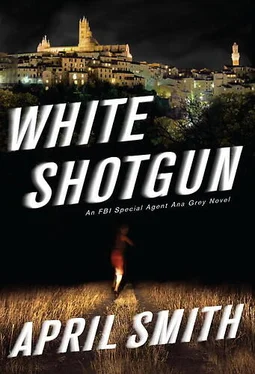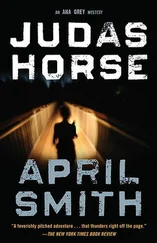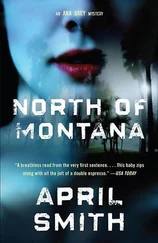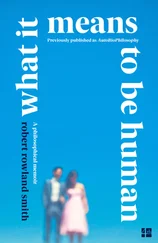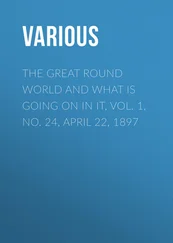April Smith - White Shotgun
Здесь есть возможность читать онлайн «April Smith - White Shotgun» весь текст электронной книги совершенно бесплатно (целиком полную версию без сокращений). В некоторых случаях можно слушать аудио, скачать через торрент в формате fb2 и присутствует краткое содержание. Год выпуска: 2011, ISBN: 2011, Жанр: Триллер, на английском языке. Описание произведения, (предисловие) а так же отзывы посетителей доступны на портале библиотеки ЛибКат.
- Название:White Shotgun
- Автор:
- Жанр:
- Год:2011
- ISBN:978-0-307-59679-6
- Рейтинг книги:4 / 5. Голосов: 1
-
Избранное:Добавить в избранное
- Отзывы:
-
Ваша оценка:
- 80
- 1
- 2
- 3
- 4
- 5
White Shotgun: краткое содержание, описание и аннотация
Предлагаем к чтению аннотацию, описание, краткое содержание или предисловие (зависит от того, что написал сам автор книги «White Shotgun»). Если вы не нашли необходимую информацию о книге — напишите в комментариях, мы постараемся отыскать её.
White Shotgun — читать онлайн бесплатно полную книгу (весь текст) целиком
Ниже представлен текст книги, разбитый по страницам. Система сохранения места последней прочитанной страницы, позволяет с удобством читать онлайн бесплатно книгу «White Shotgun», без необходимости каждый раз заново искать на чём Вы остановились. Поставьте закладку, и сможете в любой момент перейти на страницу, на которой закончили чтение.
Интервал:
Закладка:
When the bus comes, it is new and air-conditioned. Despite the hordes at the station, there are not many going to Siena. The front seats are taken by two elderly nuns and a blind priest. When we pass the outer industrial rings of the city, the terrain becomes deeply green, broken by raked fields of mustard yellow, dappled with rolls of hay. As we enter the provinces of Umbria, and then Tuscany, there are no malls or subdivisions. The bus stops in few towns along the way. Soon the only sign of modernity is a power line going by in a hypnotic stripe.
I open the file Dennis gave me on Nicoli Nicosa. It describes a cagey player, adept at choosing the side in power, and apparently without political loyalty. He first came to the FBI’s attention when he was observed by a surveillance team that had been following Lucia Vincenzo, forty-two, the widow of a crime boss who was executed in classic manner while he drove to the sweatshop he owned outside Naples, where he employed master tailors and seamstresses to make high-quality copies of designer clothing. He got behind on his extortion payments to ’Ndrangheta; they threatened to seize the business. He resisted; they took him out before breakfast.
After her husband’s murder, ’Ndrangheta made Lucia a deal. She would continue to run the fake high-end clothing business, but now as a money-laundering scheme for their cocaine operation. Profitable for everyone. Her mistake was to hire Chinese immigrants, cheap labor, to work in the shop. It didn’t matter that drug money flowed in and out as usual. By hiring the Chinese she had crossed the crime families who control the counterfeit merchandise trade — an unforgivable slap in the face that could unbalance the delicate truce between the clans. She was a wild card. ’Ndrangheta had to cut her off.
They called her La Leonessa, the Lioness, because she was remorseless and arrogant as a cat, and she obliged the nickname by sporting skintight animal prints, furs, and ropes of gold. From the photos and news clippings reproduced in the file, the Lioness looked like the cliché of a mistress: full-busted, with thick black hair and the size-two body of a teenager. She vanished from a supermarket parking lot in January of this year — punishment for dealing with the Chinese without permission.
That was the theory. But if the husband is always the prime suspect, the lover must be second in line. While the file details five trysts in luxury hotels in Como and Milan between Nicoli Nicosa and Lucia Vincenzo over the past year, it contains no hard evidence that they were in the cocaine business together — but why not? Lucia was an overconfident amateur and Nicosa a street-smart opportunist who might have been looking for a partner. Maybe he saw a way to prove himself to the big boys by aiding in her death.
Like the princes of the Italian city-states, Nicosa seems to possess a natural understanding of alliances. The son of a Sienese coffee roaster, he graduated from the Università degli Studi di Roma and studied in the United States at Harvard Business School. There he connected with the son of a member of the ruling class of El Salvador. In that deeply troubled country it was open season for ruthless young men. His classmate’s father liked the charming, big-eyed Italian and treated him like another son; he gave him a postgraduate course in bribery and corruption that allowed Nicosa to buy out the indigenous farmers who were growing yucca, in order for him to plant coffee. The file notes that although the civil war had ended, “buy out” was often a euphemism for “disappeared.”
Nicosa continued to profit from a cordial relationship with the right-wing power brokers. After a major earthquake, he was awarded a contract to build a water treatment system. Although the water project is still touted on the official government website as having revitalized a devastated area, it was never built. Nicosa and his behind-the-scenes benefactors pocketed millions.
It was in the aftermath of this earthquake that he met Cecilia Sanchez, a young doctor working in an emergency clinic set up near his plantation. There is a gap of three years before Cecilia immigrated to Italy, and they were married in Nicosa’s hometown of Siena. It could not have been easy for a young woman to leave a poor extended Catholic family that depended on her income as a doctor. There isn’t much in the file on Cecilia’s side of the story, except copies of the letters she sent to FBI HQ in Washington, D.C., searching for an American relation named Ana Grey. She gives the reason as a small inheritance she is allegedly holding for me, but then the letters grow more desperate:
“… Since I was a little girl, I have held in my heart the name of Ana Grey, our relative who lived in America. I believe that we are meant to find each other. The discovery of her work for the American Federal Bureau of Investigation gives me hope. It is very important to my family that I can find her. Please reply as soon as possible …”
I can hear her voice as it was on the phone, with its unique blend of accents, like nutmeg and tamarind, speaking through the words on the dull photocopy. “Since I was a little girl, I have held in my heart the name of Ana Grey.” As Dennis Rizzio had wondered, why make contact now? What is going on inside that “little house on a hill” that would cause the wife of a wealthy man in Europe to reach out to a stranger in America?
Glancing out the bus window, I see the landscape has changed. The yellow fields are gone; instead there is a cheesy strip mall with a discount shoe pavilion and outlets for tires and wine. As I observe families at tables outside a pizzeria, the image of the two young brothers at the London restaurant comes into my head. I watched as the younger boy expired in his brother’s arms. I saw his body receive that decisive stillness. And Marco never once let go.
I hear the desperation in Cecilia’s voice on the page and wonder if this is ultimately what she asks of me — the unconditional devotion of family. My heart stirs, but I deny the feeling. My grandfather Poppy’s house, where I grew up, was a forbidding, unsafe place of locked-away love with no possibility of consolation. All my life I have held myself apart from family bonds because I never believed family could mean anything but cold disappointment. Yet now, under orders of my superiors at the FBI, I am speeding toward it.
SIENA, ITALY
FIVE
The commercial sprawl continues until the bus swings around a corner, heading straight for a huge stone wall. At the last minute we swerve through a narrow gate topped by a statue of a wolf. Once inside the walls, we halt at the Siena bus station, a concrete island in a small piazza.
The driver waits as I bump along the aisle, impatient eyes meeting mine in the mirror. Out on the street, the air is baking and the spare trees are heavy in the stillness. The air brakes whoosh, and the bus is gone. I look hopefully for Cecilia Nicosa, but nobody approaches. I wait in the shade. The suitcase and rumpled shorts must immediately make me for American. I can’t get a signal on my cell phone. After fifteen or twenty minutes, I set out to find a landline.
Straight ahead there is a fortress in a park. Turning the other way, you face a jumble of signs. Il Duomo, the main cathedral, is in that direction, which must lead to the city center. I seem to be near a school. College students are lounging on the steps of an apartment building, and there is a large outdoor café a few blocks farther on. I tick off the possibilities. Cecilia is late. Cecilia didn’t get my text message. Cecilia is mistakenly waiting at the train station. I am starting to feel panicky, although there is no danger.
As I near the café, someone calls my name.
Читать дальшеИнтервал:
Закладка:
Похожие книги на «White Shotgun»
Представляем Вашему вниманию похожие книги на «White Shotgun» списком для выбора. Мы отобрали схожую по названию и смыслу литературу в надежде предоставить читателям больше вариантов отыскать новые, интересные, ещё непрочитанные произведения.
Обсуждение, отзывы о книге «White Shotgun» и просто собственные мнения читателей. Оставьте ваши комментарии, напишите, что Вы думаете о произведении, его смысле или главных героях. Укажите что конкретно понравилось, а что нет, и почему Вы так считаете.
